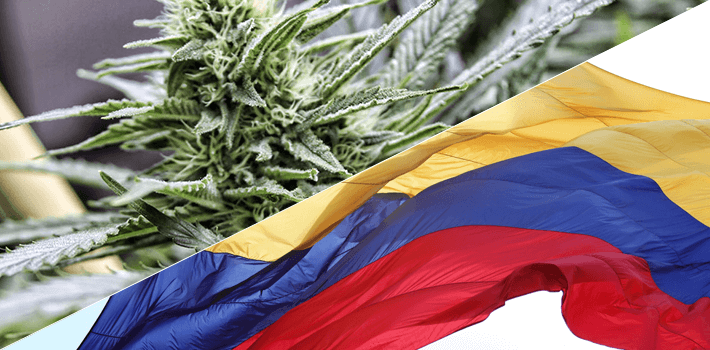Flora Growth Corp. receives GACP certification as Colombia legalizes dried cannabis flower exports
International cannabis consumer packaged goods company Flora Growth Corp. has received global medical cannabis credential in the form of a Good Agricultural and Collection Practices (“GACP”) certification. The cultivator and distributor also recently celebrated the launch of a new CBD wellness brand called Munzhi.
With Control Union Medical Cannabis Standard (“CUMCS”) approval under its belt – the globally leading certification standard for medical cannabis certification – Flora can legally begin exporting the plant amid federal cannabis legalization in Colombia and Panama.
Flora Growth’s location in Colombia holds significant importance, since the South American country recently legalized exports of dried cannabis. At its Colombian operations, the cannabis company is currently producing 190+ products.
Of that amount, 63 products have been registered by The Colombia National Food and Drug Surveillance Institute (Instituto Nacional de Vigilancia de Medicamentos y Alimentos or INVIMA) as over-the-counter (“OTC”) products.
Moreover, Flora’s regulatory-approved products have bagged three GMP certifications from an agency that is responsible for governing the country’s food and drug trade.
Colombia approved exports of dried cannabis in June
On Friday, June 18, Colombian lawmakers approved the legalization of dried cannabis exports for the medical industry, as well as various other industries that depend on the plant in dried form. This groundbreaking move demonstrates major progress for the industry, which has gotten off to a slow start since cultivation was legalized in 2016.
In April, the country made its first legal cannabis shipment to the U.S. However, dried cannabis exports were still prohibited at this time. The decree that eased prohibition on dried cannabis flower exports in Colombia was signed by President Ivan Duque. He claims that the move will have a majorly positive impact on investments. What’s more, the ruling simplifies regulatory procedures and broadens opportunities for cannabis-based medicines to be sold.
“This means Colombia can enter to play a big role in the international market,” Duque is quoted as saying after he inked his signature on the decree. He made a point of noting that the rules will make Colombia’s cannabis industry more appealing for the cosmetics, food and beverages sectors.
Latin American cannabis exports could generate billions of dollars
Sources say that the Latin American cannabis market will be worth US$12.7 billion by 2028. The export market is likely to deliver half of that amount, with Duque claiming that this segment of the market could be worth $6 billion.
Now that prohibition has been lifted on the exporting of dried cannabis flower in Colombia, the country is sure to capitalize on this opportunity and take advantage of global demand for the plant.
Countries such as Germany, Israel, the United Kingdom and the United States offer inspiration for Colombia’s dried flower export market. After all, dried cannabis constitutes the most developed sector of the market in these countries; accounting for more than 50 percent of sales.








